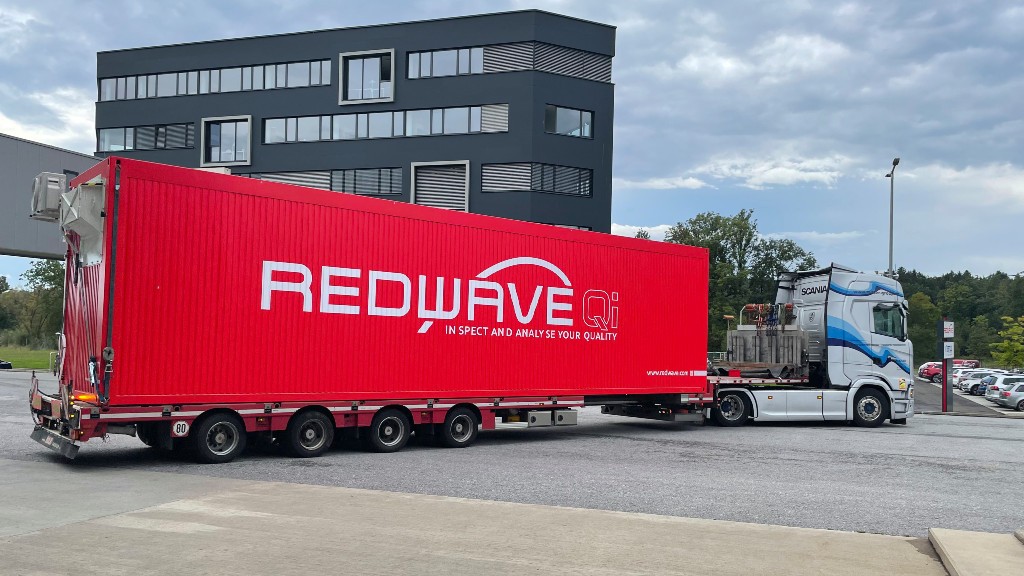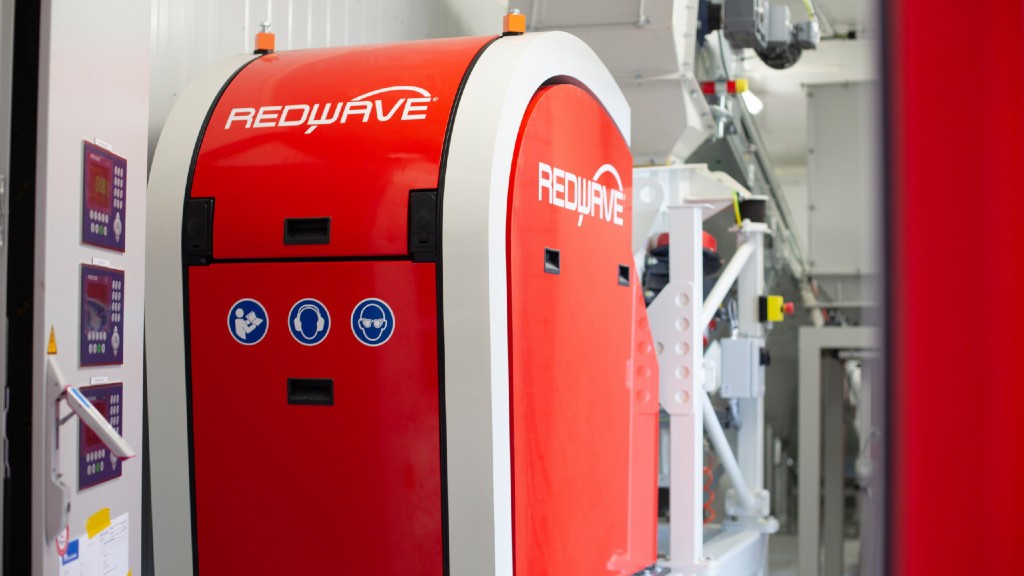REDWAVE quality control system removes glass impurities and increases quality at Wiegand-Glas

REDWAVE has delivered a fully automatic quality control system in a mobile container design to one of the largest glass manufacturers in Germany.
This container solution is fast and easy to install, and its flexible design allows for both future adaptations and quick location changes.
Wiegand-Glashüttenwerke GmbH
In October 2022, Wiegand-Glas, a family-owned glass manufacturer in Germany, took possession of REDWAVE's Qi, a quality control system engineered to fit into a mobile shipping container. As clean cullet is the most important raw material in glass production, and high-quality cullet is a prerequisite for a strong final product, contaminants such as ceramics, stones, or porcelain can instigate massive financial loss in glass production. Additional impurities found in heat-resistant and non-melted glass-ceramic particles can slip into the cullet, leading to weaknesses in the newly produced glass and increasing the probability of shattering. In order to avoid these impurities, Wiegand-Glas invested in a REDWAVE Qi mobile container-housed quality control system.
This system is designed to be independent but can be set up as either mobile or stationary units and can be integrated into an existing sorting system. Soon-to-be-processed material is examined, controlled, and evaluated via a REDWAVE Qi analyzer to determine the quality of the cullet before actual glass production commences. By testing the material composition, the REDWAVE Qi can provide information regarding the quality of the input material. This step allows for the discovery of unwanted impurities which can later create weaknesses in the final glass product.
How the REDWAVE Qi works
If a REDWAVE Qi is permanently integrated into a sorting system, quality assurance and quality control are carried out during the sorting process. In the mobile shipping container variant, a pre-determined, unscreened sample is transported via a conveyor belt into the machine for analysis. The sample is examined, and the impurities are ejected for further analysis. The material, as well as the ejected impurities, are weighed in order to determine the contaminant content and then re-evaluated.
This detailed evaluation takes place via the system itself or digitally via the REDWAVE mate software; both serve as verification of product quality. Alerts are issued if thresholds are exceeded or fall below the specified requirements. The system provides information about the nature of the material, the grain size, the weight, the colour distribution, or the material composition. If the tested and analyzed material meets the requirements of the glassworks, it is used in new glass production. If the material does not meet the requirements, the material can be rejected by the glass producer and returned to the cullet processor for additional sorting. This saves the glass producer both time and money.
Different analyzing systems
REDWAVE Qi can be designed as a mobile container, stationary integrated into a plant, or as a single analysis system.
As a stand-alone, mobile container solution or integrated into an existing sorting plant, the system is increasingly used in glass recycling or in glass production for quality control. The analysis evaluations serve as proof of the quality of the cullet.
Executed as a single analysis system, the processed material is analyzed, controlled, and evaluated by REDWAVE Qi. Based on the material surface, the material composition is determined in order to output calorific values, heating values, and material moisture for refuse-derived fuel processing plants. This data output is indicated online via the REDWAVE mate software. The material data composition includes chlorine values, RDF details, and purity confirmation for the original input material. This allows a comparative measurement with, for example, values from incineration or chlorine analysis in the laboratory.
A mobile container solution
The container is pre-assembled mechanically, electrically, and pneumatically, at REDWAVE's warehouse, which eliminates cost-intensive on-site assembly times for the user. If the conditions at the existing location change or if the container is needed in another system, it can be easily moved and quickly installed elsewhere.
Stationary integration into the glass processing plant
An input material sample is continuously taken from the product stream, during the ongoing sorting process, to ensure the quality of the final product. The sample quantity is controlled by the setting of the opening time, and opening frequency of the flap, and can be up to 10 percent of the total input. An additional advantage of quality control is that the continuous analysis and control of the material makes troubleshooting in a sorting system much easier (e.g. for the screen mats or the sorting machines). Stationary integration ensures the full functionality of the system and targeted data evaluation makes it possible to increase plant efficiency.



